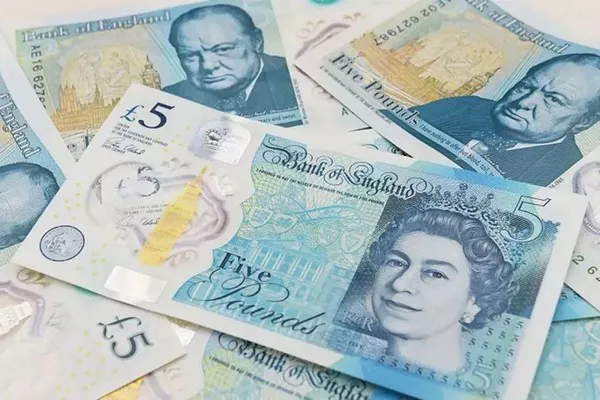The Bank of England (BoE) is the United Kingdom’s central bank, responsible for overseeing the country’s monetary policy and financial stability. As a key player in the British financial landscape, the BoE’s decisions have a profound impact on the British Pound (GBP), the nation’s currency. In this article, we explore how the BoE’s choices and policies influence the GBP and the broader UK economy.
The Role of the Bank of England
Before delving into the specifics of how BoE decisions affect the GBP, it’s essential to understand the central bank’s primary objectives and tools.
1. Monetary Policy: The BoE’s main role is to set and implement monetary policy in the UK. This includes influencing interest rates, managing inflation, and promoting economic stability.
2. Financial Stability: The central bank also focuses on ensuring the stability of the financial system. It monitors and regulates financial institutions to prevent crises and protect consumers.
3. Currency Issuance: The BoE is the sole issuer of banknotes in England and Wales, and it plays a significant role in the issuance of currency throughout the UK.
Now, let’s explore how the BoE’s decisions in these areas impact the GBP.
Interest Rates and Exchange Rates
One of the most direct ways the BoE influences the GBP is through its control over interest rates. The central bank sets the official bank rate, often referred to as the base rate. Changes in this rate can have immediate and substantial effects on exchange rates, including the GBP.
1. Interest Rate Increases: When the BoE raises interest rates, it typically strengthens the GBP. Higher rates make UK assets more attractive to investors seeking higher returns on their investments. As a result, there is increased demand for the GBP, driving up its value in foreign exchange markets.
2. Interest Rate Decreases: Conversely, when the BoE lowers interest rates, it often leads to a weaker GBP. Lower rates make UK assets less appealing to investors, reducing demand for the currency and causing its value to decline against other currencies.
Inflation Targeting
The BoE also has a mandate to target a specific inflation rate, currently set at 2%. To achieve this target, the central bank uses its monetary policy tools, primarily interest rates.
1. Inflation Above Target: If inflation exceeds the 2% target, the BoE may respond by increasing interest rates. This action can attract foreign capital, driving up the GBP’s value, as higher interest rates offer better returns on investments.
2. Inflation Below Target: When inflation falls below the target, the BoE may lower interest rates to stimulate economic activity. Lower rates can weaken the GBP as investors seek higher returns elsewhere, reducing demand for the currency.
Economic Stimulus and Quantitative Easing (QE)
During times of economic uncertainty or crisis, the BoE may employ unconventional monetary policy measures such as quantitative easing (QE). QE involves the central bank purchasing financial assets, usually government bonds, to inject money into the economy.
1. QE and Currency Depreciation: Implementing QE tends to weaken the GBP. As the BoE purchases bonds, it increases the money supply, potentially leading to inflation. This expectation of future inflation can erode the currency’s value, causing it to depreciate.
2. Forward Guidance: The BoE’s communication and forward guidance also play a role in shaping market expectations. Hints or indications of future policy actions can impact investor sentiment and affect the GBP’s exchange rate.
Financial Stability and Confidence
The BoE’s role in maintaining financial stability indirectly influences the GBP. Actions to stabilize the financial system can impact market sentiment, which, in turn, affects the currency.
1. Banking Crises: During banking crises or financial instability, the BoE may intervene to support troubled financial institutions. These interventions aim to restore confidence in the financial sector and prevent systemic crises. A stable financial system can bolster investor confidence and support the GBP.
2. Regulatory Changes: The BoE’s regulatory decisions, such as changes to capital requirements for banks, can impact the stability and competitiveness of the UK financial sector. A robust and well-regulated financial industry can attract foreign investment, potentially strengthening the GBP.
Global Economic Factors and Brexit
It’s important to note that the GBP’s value is not solely determined by the BoE’s actions. Global economic factors, geopolitical events, and developments like Brexit also influence the currency.
1. Global Economic Conditions: The GBP is sensitive to global economic trends. Economic slowdowns in major trading partners can reduce demand for UK exports, potentially weakening the GBP.
2. Geopolitical Events: Events like Brexit can have a significant and lasting impact on the GBP. The uncertainty surrounding the UK’s exit from the European Union caused fluctuations in the currency’s value, demonstrating the influence of geopolitical factors.
3. Market Sentiment: Investor sentiment and risk appetite play a crucial role in the GBP’s exchange rate. Positive sentiment can drive demand for the currency, while negative sentiment can lead to depreciation.
Conclusion
The Bank of England’s decisions and policies wield substantial influence over the British Pound and the broader UK economy. Interest rate changes, inflation targeting, economic stimulus measures, and financial stability efforts all have direct and indirect effects on the GBP’s exchange rate. However, it’s essential to recognize that the GBP’s value is also influenced by a myriad of global factors and market sentiment. As a result, the relationship between the BoE’s decisions and the GBP’s performance is complex and subject to ongoing developments in the UK and worldwide.


